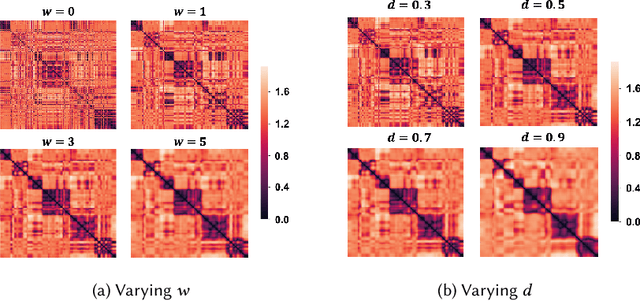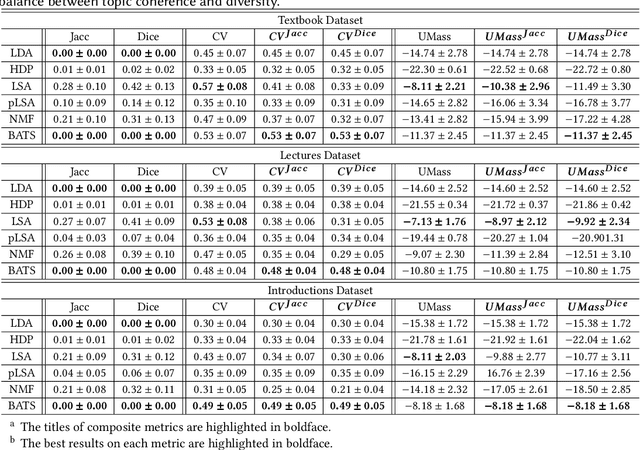BATS: A Spectral Biclustering Approach to Single Document Topic Modeling and Segmentation
Paper and Code
Aug 05, 2020



Existing topic modeling and text segmentation methodologies generally require large datasets for training, limiting their capabilities when only small collections of text are available. In this work, we reexamine the inter-related problems of "topic identification" and "text segmentation" for sparse document learning, when there is a single new text of interest. In developing a methodology to handle single documents, we face two major challenges. First is sparse information: with access to only one document, we cannot train traditional topic models or deep learning algorithms. Second is significant noise: a considerable portion of words in any single document will produce only noise and not help discern topics or segments. To tackle these issues, we design an unsupervised, computationally efficient methodology called BATS: Biclustering Approach to Topic modeling and Segmentation. BATS leverages three key ideas to simultaneously identify topics and segment text: (i) a new mechanism that uses word order information to reduce sample complexity, (ii) a statistically sound graph-based biclustering technique that identifies latent structures of words and sentences, and (iii) a collection of effective heuristics that remove noise words and award important words to further improve performance. Experiments on four datasets show that our approach outperforms several state-of-the-art baselines when considering topic coherence, topic diversity, segmentation, and runtime comparison metrics.
 Add to Chrome
Add to Chrome Add to Firefox
Add to Firefox Add to Edge
Add to Edge